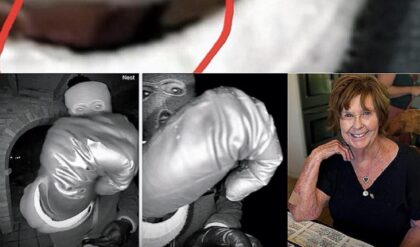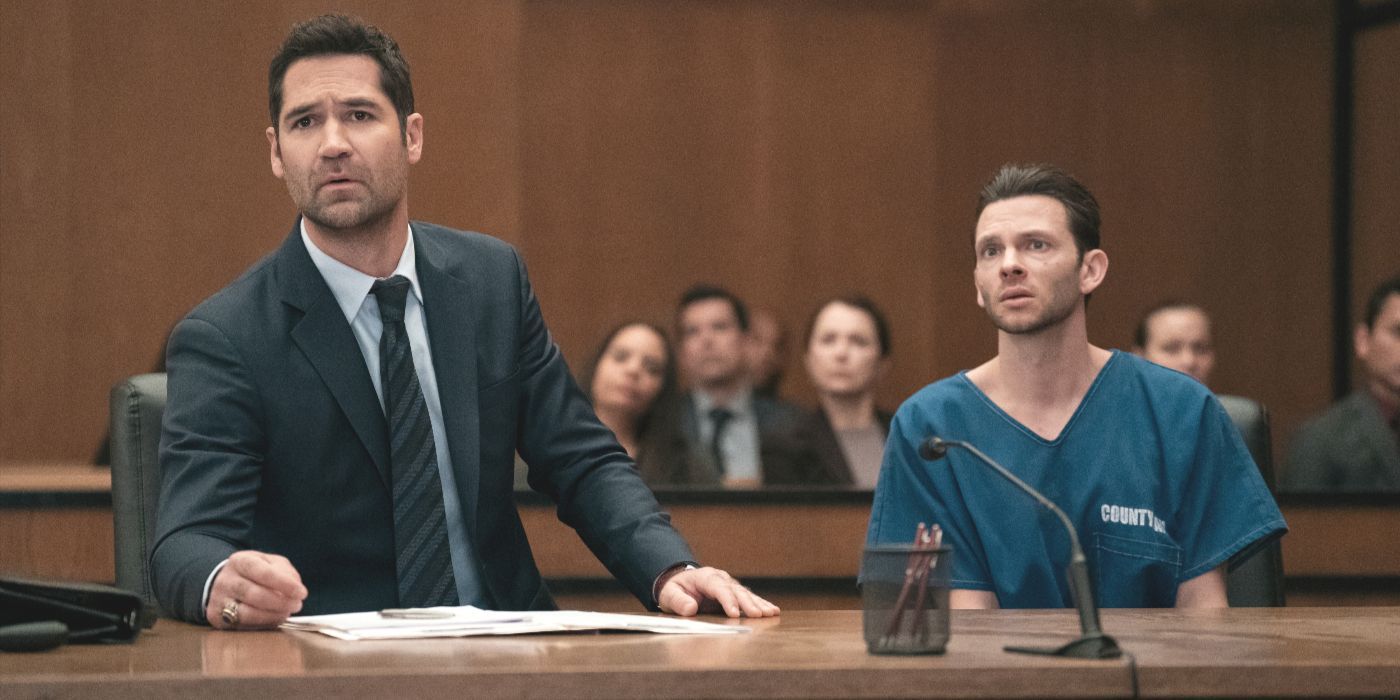
In an interview with CBR, Humphrey revealed why he’s been excited about this season since he started developing The Lincoln Lawyer for television years ago. He discussed what went into not only crafting Season 3, but why the show is unique among other legal dramas, including his time on the critically acclaimed CBS drama The Good Wife. Plus, what would he consider the most impactful scene?
CBR: You’ve worked on several legal dramas over your career. What sustains your interest in the genre — your appreciation for the law as a former attorney or is there also something in a dramatic sense that you love?
Ted Humphrey: It’s a little of both. I was a lawyer, and that’s not that unusual in Hollywood. There are other people who do what I do who are former lawyers. But when I got into this, I never necessarily set out to do legal dramas . I just organically found them really, really compelling, probably because yes, there’s something inherently fascinating about it. That’s what drew me to it in the first place and I think draws audiences to it. It’s an evergreen genre.
Prior to The Lincoln Lawyer, you spent years on The Good Wife, which was widely considered to be not only a great legal drama, but one of the best shows on television. What would you say differentiates this show from that one, or any of the many other legal shows on TV?
I think the shows are very different. This show is serialized, and it’s a short order relative to The Good Wife. It’s 10 episodes, serialized streaming, binging model show, versus The Good Wife was [a] long order, 22 [or] sometimes even 23 episodes, network episodic show. We had strong serialized elements in The Good Wife — the personal story that stretched over the whole season and multiple seasons — but the cases every week were sort of episodic.
The Good Wife was a network show and trying to be the best network show it could be, and this is a streaming serialized show and trying to be the best streaming serialized show that it can be. I think the serialized aspect gives us more opportunity for complicated plotting. That comes sometimes directly from the books and sometimes things that we add to the books and create. But the serialized streaming model relies on plot-driven cliffhangers that keep people binging, and these stories are perfect for that. Whereas The Good Wife relied more on personal or emotional cliffhangers to keep people invested throughout the course of the season. We have plenty of those in our show as well, though.
Personal is a perfect word to describe The Lincoln Lawyer Season 3, which is the most emotional that this show has ever been. You’re doing this story at a great time, after you’ve had two seasons to get to know the character of Mickey Haller and the talents of Manuel Garcia-Rulfo. What has it been like to dig into this specific narrative?
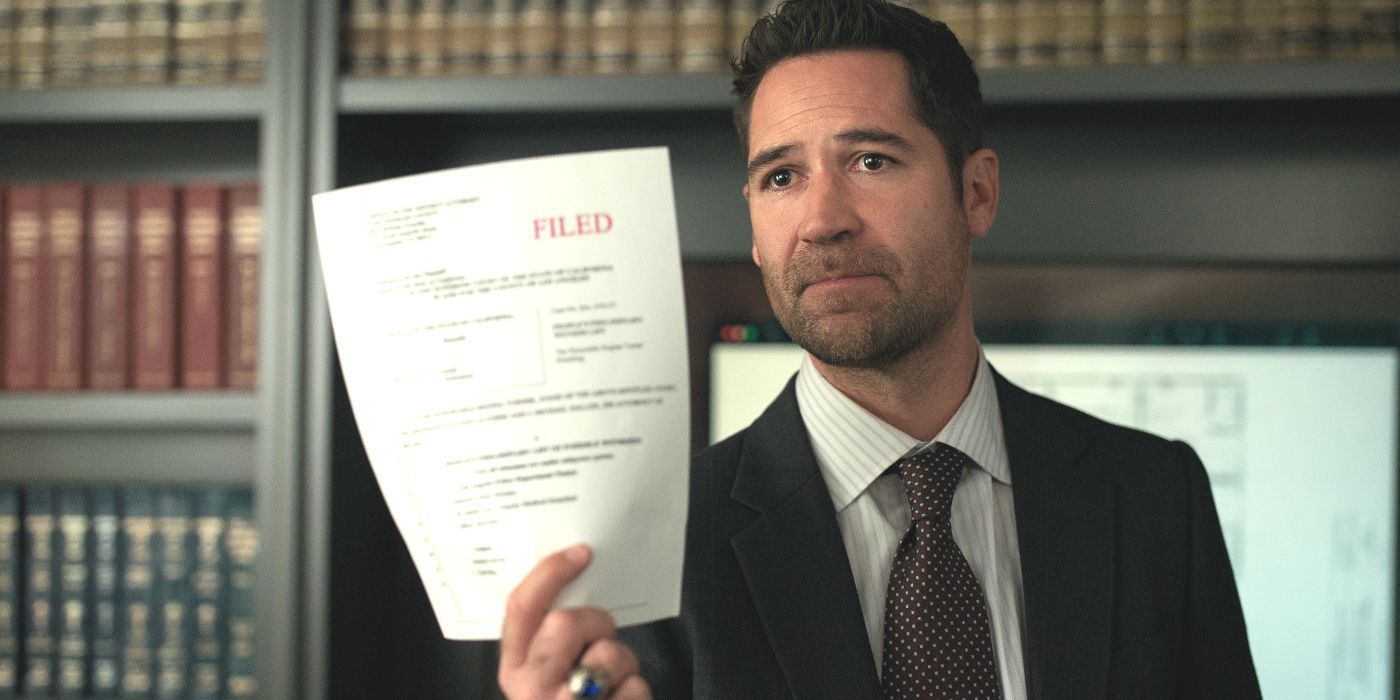
This is one of my personal favorites of the books — maybe my favorite. [Author] Michael Connelly said it’s one of his personal favorites as well. Precisely because it is so emotional. Right from the get-go, when I first started adapting these books to this series, I really was looking forward to doing this book [ The Gods of Guilt ].
We couldn’t do it right away, because you have to build to it. There’s things that you have to build on screen to set this season up. And so from the very beginning, we were building towards doing this season and I was looking forward to doing this season. I’ve been excited about this for several years now — especially the story within the story that happens with Mickey and the character Bishop, who’s played wonderfully by Holt McCallany. We knew we had to get somebody really fantastic to bring this character to life, and we were lucky to get Holt. He does such a great job.
This is one of the most emotional books, and it’s the most emotional season we’ve done so far, because it’s so personal to Mickey. He feels responsible in a very real way for what has happened to Glory Days, his longtime client and friend. Even though he’s representing a guy named Julian La Cosse, in a very real way his client’s Glory Days, and that personal connection that he has clouds his judgment. It makes him do sometimes not the wisest thing, but it makes him even more committed to getting to the bottom of what happened.
Were there specific highlights for you as you were making the season? Anything that particularly stood out once you finally were in the process of filming?
The personal relationship we develop between Mickey and the character of Andrea Freemann, who’s played by Yaya DaCosta. She’s in the book The Fifth Witness , which we adapted for Season 2; she’s not in this book, but we loved the character and the portrayal so much that we brought her back and managed to weave her in.
The emotional ripples of this case across Mickey’s life, including with his daughter and with his family, are a huge part of what makes this season so compelling. I think hopefully we did a good job with that.
I had the opportunity to direct the final episode, which is called “The Gods of Guilt,” [and] is the climax of this story. That was a really great experience for me, and I’m really proud of it. The final court scene, which is Bishop’s testimony, was the longest court scene. It took three days to shoot. We probably ran through that testimony start to finish 50 times in the course of shooting that, and every time it was heartbreaking. Holt’s performance is fantastic in this season and very deserving of being recognized.
You mentioned incorporating Andrea into this season, even though she doesn’t appear in the book. How have you been able to so well preserve the work and the voice of Michael Connelly, while making those changes that best serve the TV series and the ideas that you want to execute?
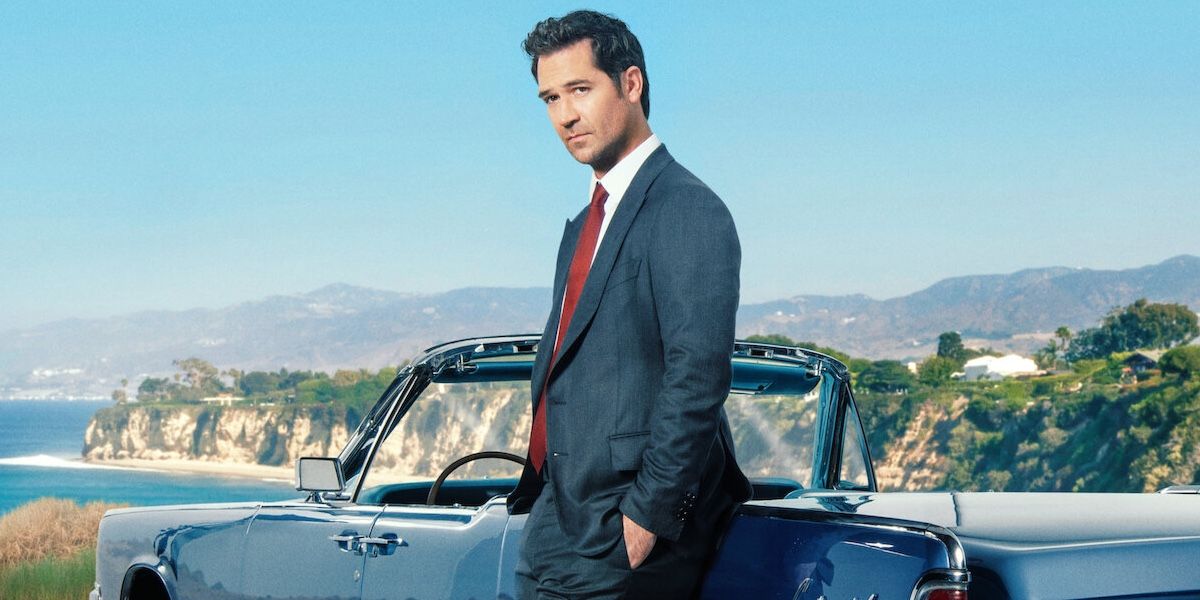
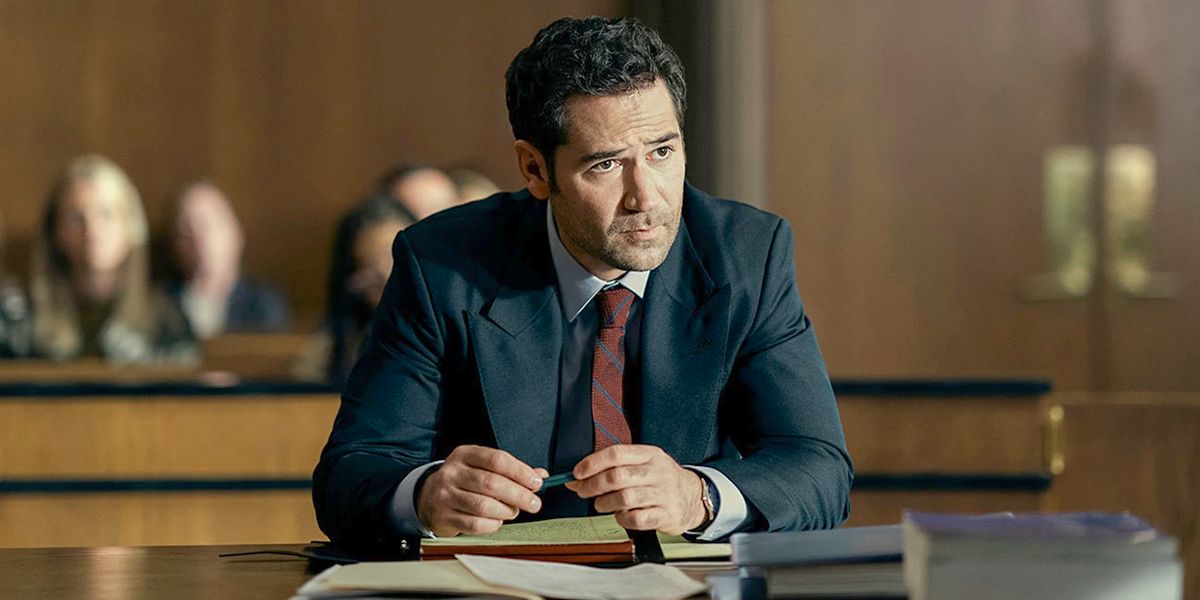
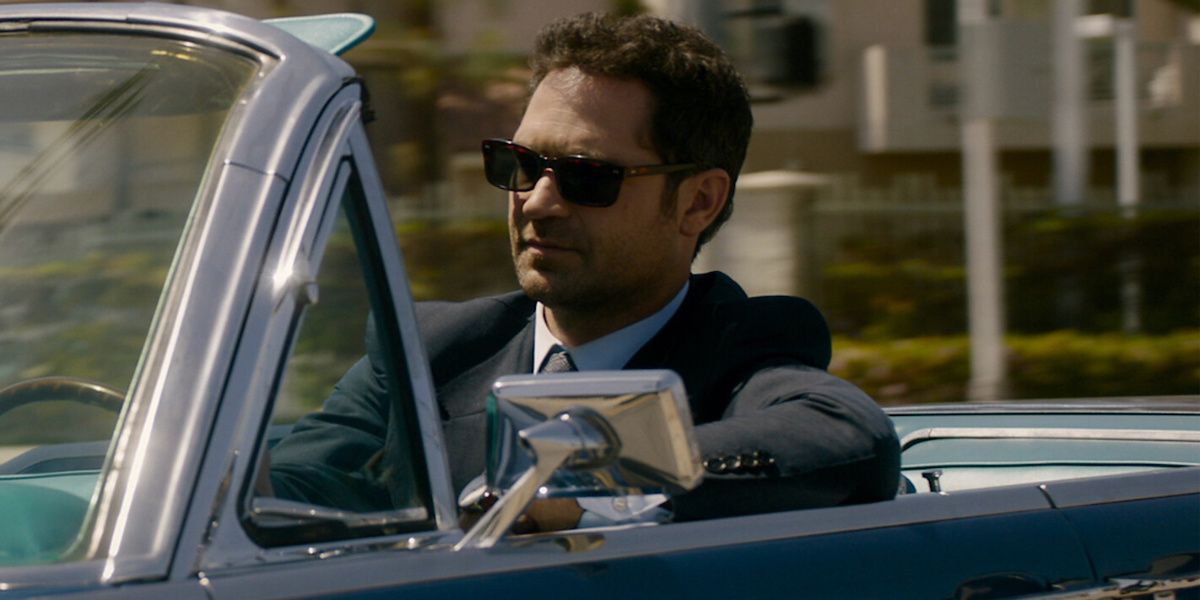
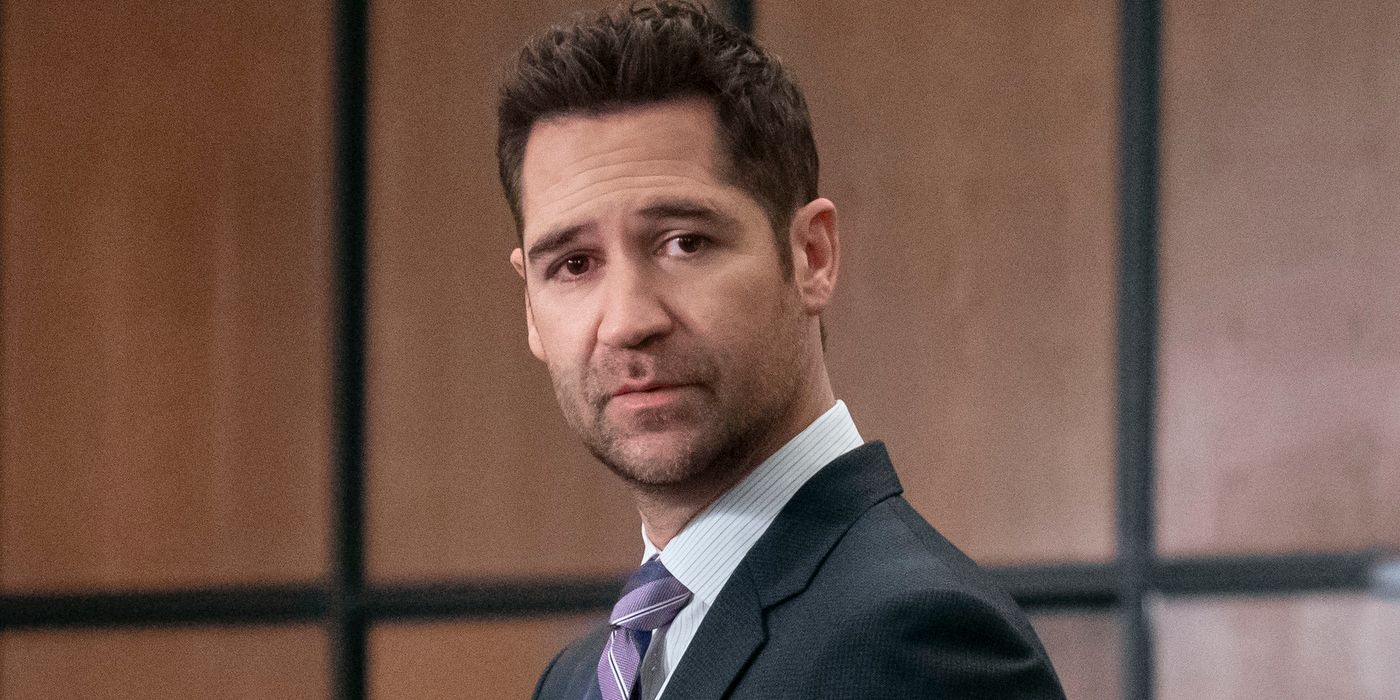




Michael has been really vocal about how he appreciates the way in which we’ve updated the books. In some cases these books are 15, even more than 15 years old at this point, and so certain plot aspects of them no longer are relevant and we have to update those and we have to change certain things. But we do it in a way that maintains the emotional connection between the characters, and everything that makes the character of Mickey Haller and everybody around him tick. He’s been very appreciative of that, and he’s a great person to work with and collaborate with.
It starts with, we decide what story we’re going to adapt for a season. And we figure out what are the tentpoles of that story — what needs to be changed, what can stay. We spread that across the season and then we just start to fill in the meat on that bone, so to speak. It kind of happens organically in that process that you take what was somebody else’s and you make it your own.
Humor is a secret weapon of our show… There’s more humor in the show than in the books, although the books have humor as well. And that’s a big part of making it its own thing. That’s something I very much took from The Good Wife. One of the things that really made The Good Wife tick was that kind of dry humor that it had.
Lastly but certainly not least, you went so far as to make Michael Connelly an on-screen character in The Lincoln Lawyer in a prior season. How did that unique bit of art imitating life happen?
We should bring that that reporter back. [Laughs.] Although that was in a flashback, from a long time ago we should bring that person back. I don’t remember what discussion there was about it; it just seemed natural to do we should actually. We should cast Michael in some small part of the show — we haven’t done that yet, and we should. I was on screen in Season 2 as a lawyer walking by Lorna at one point, and we should do something like that with Michael.
My sister was a public defender for 30 years, and Michael Connelly is her favorite author, and Harry Bosch is her favorite character. This was the case before I ever got involved with the show. And I always tell Michael, you’re doing something right if you can make a public defender say that her favorite character is a cop, because public defenders and cops don’t always get along so well. [Laughs.]
But what my sister does is fascinating. I think criminal law’s fascinating. I was not a criminal lawyer; I was more like what you saw in The Good Wife. In fact, a lot of that law firm politics stuff came from my experiences as a lawyer at a law firm. I think I would have really enjoyed being a criminal lawyer, but it’s just a very different life.
The Lincoln Lawyer Season 3 is now streaming on Netflix.

